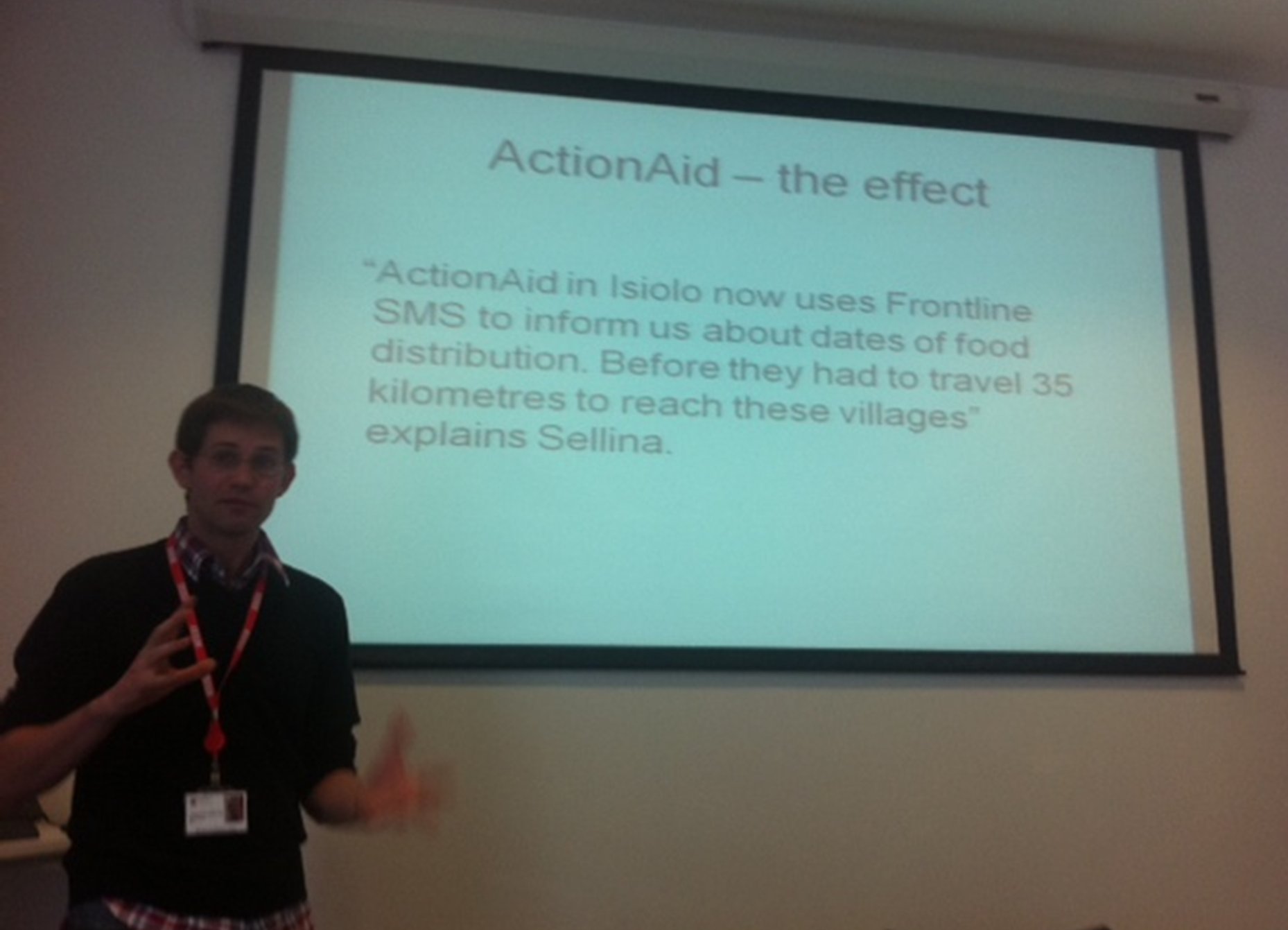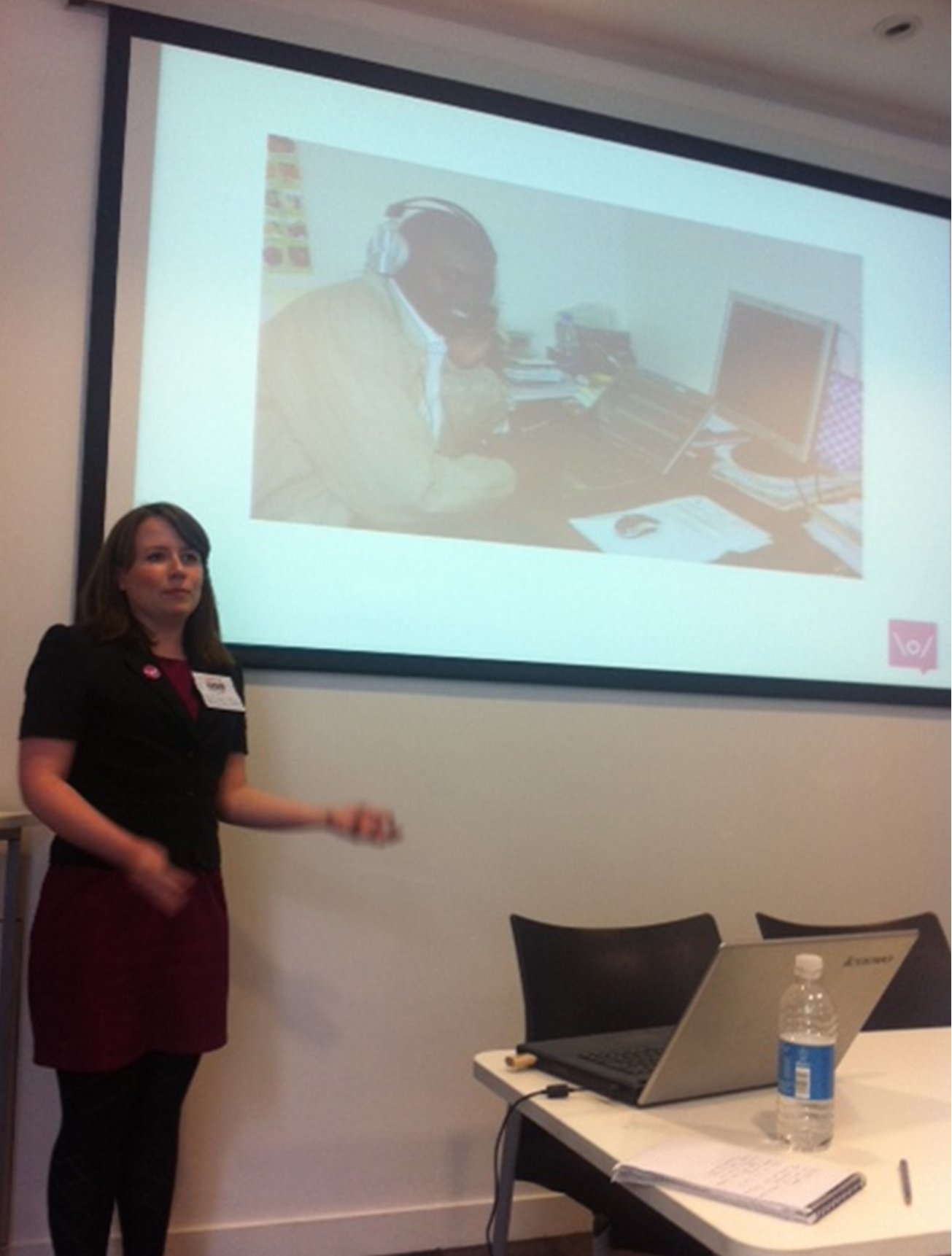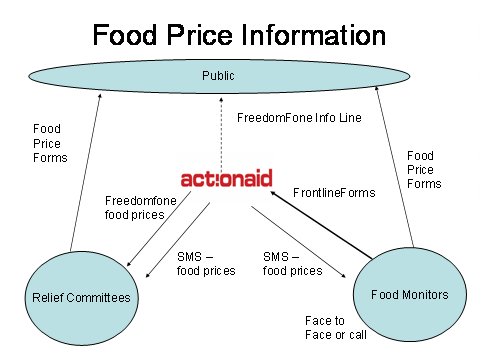 By Amy O’Donnell, FrontlineSMS:Radio Manager
By Amy O’Donnell, FrontlineSMS:Radio Manager
Recently my colleague Flo and I visited BBC Media Action for a Knowledge Sharing session which focused on the use of innovative mobile technology to enable effective communication for social change. BBC Media Action (previously known as the World Service Trust) "uses media and communication to provide access to information and create platforms to enable some of the poorest people in the world to take part in community life. With a focus on programming that directly engages people in debate and discussion thereby encouraging communication across political, ethnic, religious and other divides in society." We felt lucky to be one of the last visitors to their longstanding home in the iconic Bush House, London as the BBC is relocating from there after 70 years.
Often when people first hear about FrontlineSMS, it’s not just the software which inspires them, but the valuable lessons we learn from how the tool is being used. BBC Media Action works to directly engage people in debate and discussion through programming and this workshop explored the potential of SMS to open up participation.
To broaden participation, combine accessible communications channels
We explored how a radio station in Uganda is using FrontlineSMS to gather incoming audience feedback via SMS to put their questions to MPs while on-air; how FrontlineSMS is engaging citizen journalists in Indonesia and how the software is being used to run a news service for women in Sri Lanka. Introducing another popular open-source platform, we explained how the Ushahidi mapping tool was used in conjunction with FrontlineSMS for election monitoring by the Reclaim Naija project in Nigeria last year to illustrate reports in relation to their location. Many of these programs use SMS in concert with other platforms, whether radio, TV or the Internet - an important element of building a truly accessible, system that works for its unique context.

BBC Media Action’s own Jonathan Robertshaw shared his experience of using FrontlineSMS as a practitioner. He explained BBC Media Action’s role in a project run by ActionAid and infoasaid which which set up a food distribution alert and food price information system in Kenya in the aftermath of the 2011 drought. The project successfully took a multi-platform approach to improving communication between relief committees, food monitors and the public. The set-up gave people options, including voice (using an interactive voice-based software called FreedomFone); detailed SMS-based data collection (using FrontlineForms, FrontlineSMS’ data collection tool); and text message (using FrontlineSMS’s core platform).
Technology is 10% of the solution
As the discussion with different Media Action project leaders delved into program specifics, we explored how technology often only represents a small proportion of overall project design. Looking at potential Media Action projects - including participatory audio dramas and humanitarian radio - reinforced how important it is not to lose sight of behavioral and cultural factors as well as critical delivery planning: outreach, messaging, integration, translation, verification and impact monitoring. One of the group asked how to anticipate the resources required to run a communication platform. Particularly when the volume of response depends on the level of interactive behavior, the group agreed there is no “one-size-fits-all” or “magic formula.” Program staff have to consider the context and stay flexible, tweaking the system to respond to the needs of their beneficiaries and staff as they develop. Resourcing this kind of responsiveness is critical and difficult, and there are costs in money and goodwill involved in introducing people to a new system, changing messages and systems too often. The group agreed that, rather than committing to services which it may be difficult to estimate demand for, organizations should manage expectations and try to test ahead of time. Trying out communications in small trials or pilots can help scope people’s reactions.
The strongest message we took away from the session was practitioners’ motivation to learn about the different tools available in the communications toolkit. Often the design of a communication system is not about one tool, but the right tool or right combination of tools which suit the context. FrontlineSMS needs limited support and people are implementing projects all over the world using the software and tools readily available to them without requiring our team’s direct involvement. We're proud of how much that makes it a really sustainable piece of software for organizations working in the last mile, and a critical tool for long-term capacity-building.








